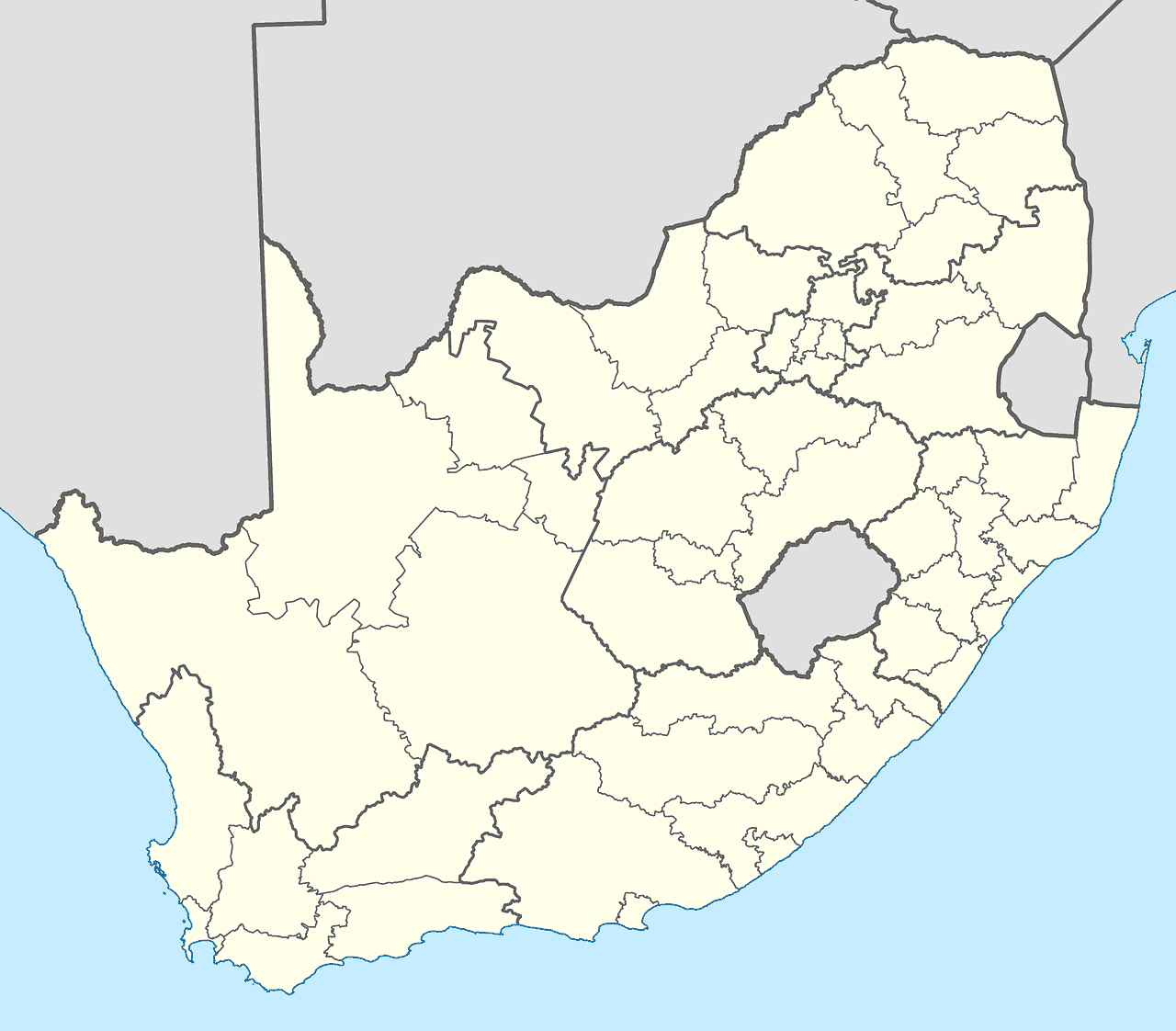Against the Union
Summary
South Africa is a highly diverse country in geography, climate, language, economy and race. As a result, central government cannot provide policies that address the needs of ordinary people without it devolving control of the agenda-setting process to a significant extent.
However, the Constitution – both as it currently exists and as it has been since the formation of the country – has been diametrically opposed to the expression of these needs in order to ensure the stability of a central administration.
This was driven by a desire to forge a new nation from many diverse people, against their will and without their consultation. The consequences were the destruction of communities, the oppression of non-governing ethnicities and the distortion of the economy.
Since the central union creates no room for diversity of interests or identity, it is imperative to create the space for local communities and the provinces to express their own several interests in the long term.
A history of domination
South Africa has been living under the curse of an ideal – one that is promoted and supported because it is conducive to grand powers and vested interests, both foreign and domestic. This is the curse of a unitary government: a permanent contest for the centre amid a divided polity.
The Union of South Africa (1910–1961) was created after the Anglo-Boer War (1899–1902) with the aim of controlling both the interior mineral extraction economy and the ports of trade. This required a centrally managed system to prevent breakdowns in trade or disruptive local rent-seeking.
In fact, the very National Convention of 1909 (at which the terms of the new Union’s constitution were hammered out) was summoned in response to the Transvaal colony’s departure from the customs union.[1] The Union was not summoned out of the interests of the localities, but out of the interests of the imperial centre and the instinct to central control. The relevance of the exclusion of natives from the proceedings should require little explanation. The existence of the Union, I contend, is primarily the containment and suppression of the interests of its constituents, and not their promotion.
At the Convention, the Afrikaner delegates preferred a unitary state, because of their electoral dominance. The Round Table Group favoured the Union because it cemented imperial control and opened the possibility of importing more English voters.[2] Smuts favoured a unitary state, because it made separatism less likely,[3] and because of its consonance with his holistic philosophy.
Through the use of the Milner Group’s instrumentalisation of the liberal idealism of Jan Smuts and John X. Merriman,[4] the federal colonies of South Africa was consolidated into a unitary state that justified its dominion over the natives in terms of an enlightened trusteeship,[5] and enlarged the black labour force that could be driven to the mines with the negative incentive of the hut taxes.
At several key moments of radical national constitutional reform, opportunities to delegate provincial authority were passed up without resistance, both in 1908[6] and in 1993.[7] And while the National Party (NP) attempted by reform to achieve consociationalism, the model proposed in 1977[8] was defeated by pressure from various progressive forces from within and without, who found a minority veto (an essential feature of consociationalism) morally repugnant and a centralised unitary state more to their taste.
The enormous military and economic power of the white state meant that to create any sort of coherent opposition, a united front seemed imperative. And it was the ANC that seized upon this logic and has from the beginning organised on a unitary basis, meaning that “tribalism” (i.e. nationalism) was seen as an enemy of liberation. The impunity of the ANC leadership for the Shell House massacre demonstrated the impotence of the Inkatha Freedom Party’s calls for Zulu autonomy in negotiations.
The reforms the NP attempted to reach a consociational federalism – Bantustan development, labour market liberalisation, the tricameral parliament, easing of racial restrictions, relaxing of enforcement of segregation – were all treated for the self-serving moral compromises they were, and opponents demanded a more fundamentalistic transformation away from any form of separatism, however watered down. Federalism, whether in service of Zulu or white nationalism, was a dead letter.
Most of the current South African Constitution was drawn from examination of the US, Canadian, German and European Union constitutions.[9] This destines the fundamental law of the country to be built upon Western Enlightenment principles, against the culturally ingrained culture of the native majority, a fact that is increasingly being addressed by contemporary legal and political scholars.[10]
While the constitutions of the US, Europe and Canada were drawn on for their civil rights frameworks, the model for South Africa’s muted form of federalism was Germany’s.[11] While there was some compromise on state centralisation, the option of federalised provincial control was regarded as equivalent to apartheid. Consequently, the provinces were allowed some limited participation, but in general the central government was given the final say on all matters.[12]
Much like the colonialists of bygone eras, the progressive framers of the Constitution chose to divide the provinces up against the grain of existing ethnic boundaries to facilitate unitary democracy, a process that requires dividing and conquering each ethnic group within it and forging a single nation despite all differences.[13]
This anti-ethnonationalist unionism was accompanied by a radical egalitarianism that found a foothold, because of a hermeneutic ambiguity in the negotiated settlement. The very first of the 34 principles of Convention for a Democratic South Africa (CODESA) was the realisation of equality between the races and the sexes.[14] While to a classical legal mind this could only be interpreted as meaning equality before the law, the ANC and the progressive lawyers who were involved in the drafting of the Constitution understood equality in the more absolute, material terms of the Freedom Charter.
This led to the current Constitution leading with a commitment to “social justice” (distinct from the unqualified term justice in that it refers to the equality of social collectives), coupled with the provisions that define racial and sexual discrimination as lawful provided it is “fair”. This leaves a great deal of room for abuse.
The egalitarian impulse also mandates some degree of wealth redistribution. Section 214(1)(b) of the Constitution stipulates that the revenues from taxation must be distributed between the provinces “equitably”, making the state fiscally highly egalitarian and diminishing the returns for effective governance of any given province, while reducing the incentives to fiscal discipline for poorer provinces.
The party-list system ensures the domination of union-level strategy even outside of the government, and a political imagination that is similarly constrained. Any adjustment to provincial tactics results in a sacrifice of the national ideal, but for opposition parties, the loss of a local base dooms national ambitions. This strategic tension favours ethnic majoritarianism, whether in the form of Afrikaner nationalism under white rule, or black nationalism under the universal franchise.
However, to acknowledge this fact openly would weaken the legitimacy of the system. Changing the national character without changing the Constitution would require social engineering, whether institutional or violent, both of which undermine the notion of liberal democracy that underpins the document itself.
A denial of reality
While our Constitution is in part federalised, provincial and local powers are strictly curtailed, relinquishing only those local powers that are subordinate to national policy designs, or are politically irrelevant, making the differences between provinces merely one of relative capacity in attracting and retaining talent in operational functions.
This not unique to Africa. As a reviewer of Ethiopian scholar Yonatan Fesshe’s book-length treatise on the topic explained:[15]
Almost all countries in the world have ethnically diverse populations. However [the leaders of most African countries] fear that the constitutional recognition and institutional accommodation of ethnic diversity will lead to societal disintegration and the ultimate collapse of the state. Yet, countless political conflicts have demonstrated that the denial and corresponding suppression of ethnic diversity does not at all constitute a successful nation-building strategy.
In general, where federalism has been implemented to any extent in Africa, it has been extremely limited. States delegate some secondary operational capacities, while clinging to centrally dominated government systems.[16] South Africa is no different – while the provinces have some participatory functions and the capital branches are divided between Cape Town, Bloemfontein and Pretoria, they have no ability to define their own agendas with any meaningful autonomy.
The series of humiliations that are visited upon the inhabitants of this territory are so storied and manifold that there remains no ethnic group who has not yet felt the sting of the whip hand over its back. No one ethnic group is capable of expressing its interests against the general interest of the economic elite and have instead chosen to ruthlessly dominate through racial coalitions. In the past, apartheid; in the present, aggressive racial quota systems.
This reflects similar experiences elsewhere in the African post-colony. Ethnic discrimination and domination, whether through minority rule of majoritarian bigotry, have characterised Zimbabwe,[17] Nigeria,[18] Rwanda and Burundi,[19] Sudan,[20] and countless others for more than two generations now. Antipathies that are motivated by historical narrative shape even the present government’s preferred choice of railway gauge.[21] And this was inevitable.
Unlike Europe, which consolidated its nations through the exercise of violent and crude social engineering in the era of the nationalist revolutions, Africa maintained a great deal of the ethnolinguistic fractionalisation that preceded colonial unification. However, few of the subnational ethnicities carry sufficient numbers to stand as nations in their own right and must instead compete for influence in coalition with others in postcolonial states.
For practical reasons, and – much like other African states – in order to maintain the central governing pattern preferred today, the languages and cultures of the various regions have had to be suppressed in favour of the colonial lingua franca, English, and a common identity had to be substituted by a general scapegoating of white people in general and Afrikaners in particular, just as minorities elsewhere (e.g. Tutsi, Igbo, Ndebele and Ugandan Indians).
The result is a country that is dominated by borrowed British and American institutions with a population that resents the values and heritage that sustain the reproduction of these same institutions, and that must keep up the pretence that these are universal expressions of human nature in order to justify them. This is a pretence that few can sustain any more.
This leads to public schizophrenia: The public must boast of an abstract benefit to diversity, while it excoriates anyone who attempts to accommodate real existing diversity. It must extoll the virtues of an alien constitution, while pretending it is universal. It must pretend that a union of nations is one nation, while it must attack those ethnicities who carry the very cultural substance that sustains the very institutions that justify that project.
A crisis of meaning
In the long tradition of Western constitutionalism there are three sorts of government delineated by Aristotle:
- monarchy/tyranny (rule by one);
- aristocracy/oligarchy (rule by a few); and
- polity/democracy (rule by many).
The Romans combined these into their supposedly perfected republic, the theory of whose functioning having been best defined by Cicero. As Cicero astutely observed, because republics rule in the name of the people (res publica or public entity), their unity is either defined in terms of the popular character, or it is a tyranny that will periodically fracture and be dominated in turns by implacably diffident factions. This unity is founded in a common sense of interest and justice that can frame laws and guide policy and reform. With this shared common sensibility, even if the means to realise these common goods may differ, they are fundamentally negotiable and factions can be reconciled. Public service and civil virtue are based on a recognition of these common values.
However, the values upon which the Constitution of South Africa is based are not those of the vast majority of the population. The ruling minority (not an ethnic minority, but rather those who buy into the basic liberal-progressive programme) are following a tradition which is based on European Enlightenment ideals (“human rights”), and 20th century American progressivism (“social justice”).
This generally favours the liberal tendencies of the English minority and those who have adopted the values extolled by the American culture industry and the elite education system. By contrast, the Afrikaner ethnos is generally guided by Christianity and a common history, which includes ties to the land that precede the French Revolution and are as such characterised by a highly conservative ethos. Similar generalisations can be made of other groups.
Many urbanised Africans lie somewhere between tradition and modernity in their disposition, and the extent of any given tendency in the general population is difficult to determine. The division between the Marxist, racialist and traditionalist tendencies has led to deep divisions between rural and urban populations in political expectations.
However, the dominant strain in academia and politics since 2015 has been characterised by a combination of Fanon’s philosophy of therapeutic slaughter, Kimberle Crenshaw’s American progressive caste system and Black Consciousness, a racial nationalism that promises nominal equality for people of colour who can conform to African culture and is defined by the ubuntu tradition, but is removed from its traditional institutions and applied instead to the Marxist political economy.
Ubuntu’s peculiar form of anthropocentric citizenship makes political exclusion synonymous with dehumanisation. Inclusion of outsiders has thus predicated their personhood upon either bride purchase, or male initiation into the mystery of isiNtu, the spiritual essence of the community.[22] Tradition has it that Christian converts were to be executed.[23]
Paradoxically, the modern traditional leaders are now overwhelmingly Christian, while the urbanised syncretic culture of the “New African” (as Jordan K. Ngubane[24] called the emerging black community under the influence of white South Africa) produced an urban elite under the current influence of the Black Consciousness Movement, that combines Marxist political economy with a race-conscious ubuntu and a reactionary return to pagan spiritualism, albeit with reduced contact to traditional cultural institutions.[25]
The traditional tendency to patiently seek out consensus, before a traditional leader who would adjudicate on the unanimous decision,[26] was replaced by a sort of revolutionary party-politics absolutism that sees little issue in the use of violent repression and homicide to deal with dissenters. This was noted as a particular feature of the PAC by Ngubane,[27] which he saw as the emerging trend – something confirmed by the people’s war strategy of the ANC from the year following his observation – total extermination of competing liberation movements to unify the people by any means available.[28]
But this having been achieved, the ultimate aim – namely the reconquest of the material wealth of the country from the minority – was frustrated by certain hard realities. The current dispensation is a compromise that arose from the stalemate between white and black power a generation ago. In the meantime, the use of black economic empowerment (BEE) by the ANC and bribery by the private sector hybridised the business interests of the old oligarchy and the present leadership.
The ANC also sidelined the traditional authorities to a great extent (except for briefly under Jacob Zuma) and made little to no provision for the promotion of native languages. This has favoured the “New African” over the “divisive” and “tribal” cultural streams. Concerted efforts are currently made to reform the Zulu monarchy through its Ingonyama Trust, which is sometimes seen as an attack on the monarchy.
The consequences of BEE and its allied policies (affirmative action and land reform) were neither to unseat the white oligarchs of their grasp on the economy, nor to alleviate poverty, but to damage the ladder to prosperity by choking the economy and corroding the competence that is required to raise the next generation to productive positions in the system.
While in recent years trust in institutions has waned and the population has urbanised, the revolutionary culture of violent terror and the group-based consciousness of ubuntu have both been loosened from their institutional context and have taken on a life of their own in the academy and in the streets. At the elite level, the trend toward a synthesis of ubuntu and revolutionary Marxism produced fallism, an ideology that closely resembles German National Socialism, but with elements of American sexual progressivism. At the street level, Black Consciousness and ANC mob tactics have produced occasional xenophobic pogroms and vigilante justice. However, this is now maturing into a nationalism of Ngubane’s “New African”, in the form of Operation Dudula and the Put South Africa First movement.
At present, there are no serious alternatives to the national question, except for the efforts of minority separatist movements such as Cape separatism or Afrikaner enclave parallelism.
The future – domination or devolution
What are the consequences of the foregoing trends? The summary essence is a paradox: The political system that was created by the South African Constitution (both the written document and the living shape of the people and their government) creates both a winner-takes-all competition to dominate the centre and a distinct inability to control it.
The low trust, historical grievances, material inequalities and the friction between culture and codified institutions make the assembly of a meaningful common ground impossible, except against the will of not just the majority, but against all the different people of the state severally. In an insightful study, Banerjee and Paneh[29] found that voters who vote according to ethnicity have less interest in whether their candidates are corrupt or incompetent. The consequences for diverse countries, provided their finding holds up generally, are clear: If ethnic divisions have any political salience, these will drive down the quality of governance.
At present, the parties that oppose the racial quota system (the Democratic Alliance, the African Christian Democratic Party and the Freedom Front Plus) do not constitute a significant enough proportion of the vote to threaten the status quo. This means that the state of affairs is highly unlikely to reform. Current populist policies are likely to remain in place or deepen. Consequently, the loss of control of the economy and the rule of law that were witnessed in recent years are also likely to deepen, drive away more foreign investment and incentivise local capital flight.
To remain in control, any governing coalition will have to compensate its partners, much like ANC branches must be compensated in order to ensure loyalty. A vicious cycle of graft and patronage, combined with economy-killing populism will increase the forces of political competition. The state will weaken and the balance of powers will fall to informal and illicit actors.
It is currently unclear how the various people of South Africa will be convinced to seek their destiny in devolving power; the cultural drivers of unity are very deeply ingrained. For now, there is the Cape independence movement, although others may emerge if a precedent is set. While the success of this movement is uncertain, even a moderate success may be able to claw back some local control and alleviate some of the competitive pressures that keep the stakes of political rivalry so high at national level.
However, it seems clear that devolving power to the provinces will bear several benefits. Primarily, handing control of the important matters to the provinces will alleviate the costs of central government considerably. It will also allow each province to tailor its policies to the local economic, demographic and geographic realities, which vary greatly. For example, government will be able to represent the various local language groups better. The more arid Cape provinces will be able to define suitable water management and agricultural policies. These provinces, also being composed mostly of racial minorities, can reduce or abolish the racial quota system that imposes abusive realities of domination by the black majority of the east of the country.
Second, the pressures of competition for control of the union will be significantly diminished. Local politics will develop divergent characters and will increase in salience. While the fundamental tensions that were created by inland resources and ports remain, this is predominantly a problem for Gauteng and KwaZulu-Natal.
Finally, the devolution will create vastly more accountability. The sheer social distance between the voter and his representative is vastly diminished by decreasing the size of the constituency. Every devolution of power gives greater autonomy and power to each vote. There are natural limits to this, of course, but that limit is far lower than the level of the provinces.
The greatest balm we may give the wounds in this nation is to lessen the power and significance of the artificial colonial borders and the attendant institutions on the lives of the people. And if the centre cannot be reasonable, if the will to dominate persists, then motions for secession may well become not only more frequent, but more and more justified.
Sources
[1] Devenish, G.E. 2011. The South African Act revisited – some constitutional and political reflections on lessons learnt from the centenary of the union of South Africa in 1910. Obiter 32(1): p. 111. DOI: https//doi.org/10.17159/obiter.v32i1.12311.
[2] Wilson, M. & Thompson, L.M. 1971. (Eds). The Oxford History of South Africa, Volume II: South Africa 1870–1966, p. 346
[3] Smuts himself cited the American Civil War as a cautionary tale for any federal government. See:
Blom-Cooper, L. 2013. Jan Christiaan Smuts (1870–1950): MiddleTemplar extraordinary. Advocate 26(2): p. 40. Available at https://www.gcbsa.co.za/law-journals/2013/august/2013-august-vol026-no2-pp40-44.pdf). Accessed on 28 June 2022.
[4] For a thorough discussion on the mechanism of this circle of political influence, the authoritative volume is:
- Quigley, C. 1981. Anglo-American Establishment. Rancho Palos Verdes, California: G.S.G. & Associates Inc.
While it is sometimes claimed that Smuts was excluded from the Milner Group by virtue of his Afrikaans ethnicity (see: Williams, B. 1946. Botha Smuts and South Africa. London: Hodder and Stoughton, pp. 52–53), Quigley’s interviews with intimate members of the group attest otherwise – to the effect that Smuts was an essential and enthusiastic member since 1903 (Quigley, p. ix) and an inner core leader since 1925 (p. 48).
[5] Devenish, G.E. 2011. The South African Act Revisited – Some constitutional and political reflections on lessons learnt from the centenary of the Union of South Africa in 1910. Obiter 32(1): pp.110–111. DOI: https//doi.org/10.17159/obiter.v32i1.12311. This serves as a curt summary of the public justifications for unitary government.
[6] Davenport. T. & Saunders, C. 2000. South Africa: A modern history. New York: Springer, p. 259.
[7] Inman, R.P. & Rubinfeld, D.L. 2005. Federalism and the democratic transition: lessons from South Africa. American Economic Review 95(2): pp. 3–43.
Inman & Rubinsfield argue the degree of devolution that was indeed granted was essential to the smooth functioning of the South African state in transition, but they do remark that there was strict resistance to granting any subnational autonomies.
[8] Vosloo, W. B. 1979. Consociational democracy as a means to accomplish peaceful political change in South Africa: an evaluation of the constitutional change proposed by the National Party in 1977. Politikon 6(1):pp. 13–28. DOI: https://doi.org/10.1080/02589347908704745.
[9] Davis, D.M. 2003. Constitutional borrowing: The influence of legal culture and local history in the reconstitution of comparative influence: The South African experience. International Journal of Constitutional Law 1(2): pp. 181–195. DOI: https://doi.org/10.1093.icon/1.2.181.
[10] See:
- Ngcukaitobi, T. 2018. The land is ours: Black lawyers and the birth of constitutionalism in South Africa. Midrand: Penguin Random House South Africa.
- Dladla, N. 2020. Here is a table: A philosophical essay on history and race/ism. Stellenbosch: African Sun Media.
- Klug, H. 2018. Decolonisation, compensation and constitutionalism: Land, wealth and the sustainability of constitutionalism in post-apartheid South Africa. South African Journal on Human Rights 34(3): pp. 469–491. DOI: https://hdl.handle.net/10520/EJC-13b87af64b.
- Madlingozi, T. 2018. Mayibuye iAfrika?: disjunctive inclusions and black strivings for constitution and belonging in ‘South Africa’. PhD dissertation. Birkbeck: University of London.
[11] See:
- Van der Westhuizen, J. 2005. South Africa (Republic of South Africa). In: Griffiths, A.L. & Nerenberg, K. (Eds.). Handbook of federal countries. Montreal: McGill-Queen’s University Press, p. 312.
- Van Niekerk, R. 2012. Revisiting history: The creation of provinces and the politics of social policy in a democratic South Africa. Social Policy & Administration 46(6): pp. 619–635. DOI: https://doi.org/10.1111/j.1467-9515.2012.00859.x.
[12] Van der Westhuizen, J. 2005. South Africa (Republic of South Africa). In: Griffiths, A.L. & Nerenberg, K.(Eds.). Handbook of federal countries. Montreal: McGill-Queen’s University Press, pp. 311–312.
[13] Van Niekerk, R. 2012. Revisiting history: The creation of provinces and the politics of social policy in a democratic South Africa. Social Policy & Administration 46(6): pp. 619–635 DOI: https://doi.org/10.1111/j.1467-9515.2012.00859.x.
[14] Davis, D.M. 2003. Constitutional borrowing: The influence of legal culture and local history in the reconstitution of comparative influence: The South African experience. International Journal of Constitutional Law 1(2): pp. 181–195 (p.189). DOI: https://doi/10.1093/icon/1.2.181.
[15] Van der Beken, C. 2012. Ethnic diversity and federalism. Constitution making in South Africa and Ethiopia. Yonatan Tesfaye Fessha. Ashgate Farnham, Surrey and Burlington VT, 2012. Afrika Focus 25(1): pp. 109–113. DOI: https://doi.org/10.21825/af.v25i1.18065.
[16] Dickovick, J.T. 2014. Federalism in Africa: Origins, operation and (in) significance. Regional & Federal Studies 24(5): pp. 553–570. DOI: https://doi.org/10.1080/13597566.2014.971770.
[17] Musemwa, M. 2006. Disciplining a ‘dissident’ city: Hydropolitics in the city of Bulawayo, Matabeleland, Zimbabwe, 1980–1994. Journal of Southern African Studies 32(2): pp. 239–254. DOI: https://doi.org/10/1080/03057070600656119.
[18] Attoh, F. & Soyombo, O. 2011. The politics of ethnic balancing in Nigeria. International journal of Sociology and Anthropology 3(2): pp. 40–44. DOI: https://doi.org/10.5897/ISJA.9000088.
[19] Maguire, L. 1995. Power ethnicized: The pursuit of protection and participation in Rwanda and Burundi. Buffalo Journal of International Law 2(1): p 49. Available at https://digitalcommons.law.buffalo.edu/bijl/vol2/1ss1/2. Accessed on 28 June 2022.
[20] A/Salam, E.A. 2008. The politicization of ethnic sentiments in the Sudan: Implications for nation-building. Journal of Third World Studies 25(1): pp. 111–135. Available at https://www.jstor.org/stable/45194440. Accessed on 28 June 2022.
[21] Department of Transport. 2022. White Paper on the National Rail Policy. Government Gazette 46356: pp. 3–4. Available at https://www.gov.za/sites/default/files/gcis_document/202205/46356gon2077.pdf. Accessed on 28 June 2022.
[22] Dladla, N. 2017. Towards an African critical philosophy of race: Ubuntu as a philo-praxis of liberation. Filosofia Theoretica: Journal of African Philosophy, Culture and Religions 6(1): pp. 53–54. Available at https://hdl.handle.net/10520/EJC-88e3bae74. Accessed on 28 June 2022.
[23] Ngubane, J.K. 1979. Conflict of minds. New York: Books in Focus, pp. 10–11.
[24] Ibid., p. 5.
[25] Exemplified by thinkers like Ndumiso Dladla, Lwazi Lushaba or Mogobe Ramose.
[26] For a thorough analysis of the institution in the present day, see:
Williams, J.M. 2010. Chieftaincy, the state, and democracy: Political legitimacy in post-apartheid South Africa. Bloomington: Indiana University Press.
[27] Ngubane, J.K. 1979. Conflict of minds. New York: Books in Focus, p. 16.
[28] Anthea Jeffery’s now well-known book on the era carries this as a general thesis. See:
Jeffery, A. 2014. People’s war: New light on the struggle for South Africa. Pretoria: Jonathan Ball Publishers.
[29] Banerjee, A.V., & Pande, R. 2007. Parochial politics: Ethnic preferences and politician corruption. CEPR Discussion Paper DP6381. Available at https://papers.ssrn.com/sol3/papers.cfm?abstract_id=1136706. Accessed on 28 June 2022

Robert Duigan
Robert Duigan is a researcher at Opinor, writer and online content creator.
.








